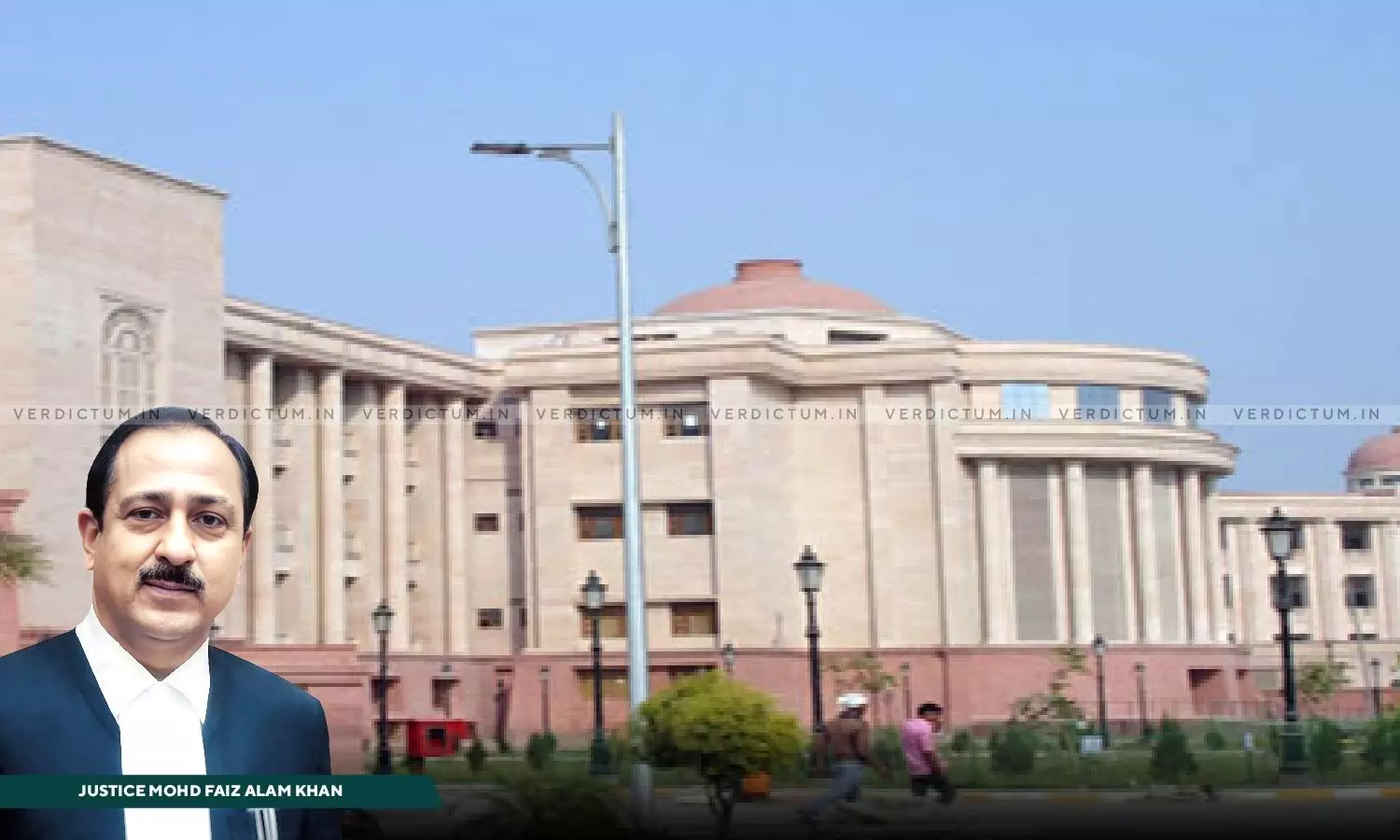
CGST Act | Proceedings U/S 132 Can Continue Despite Discharge of Notice For Tax Liability U/S 74: Allahabad HC
 |
|The Allahabad High Court observed that proceedings under Section 132 of the Central Goods And Services Tax Act, 2017 will remain alive even after the discharge of notice for tax liability under Section 74 of CGST, Act
The Petitioner, Deepanshu Srivastava approached the High Court with the present bail application in a case under Section 132 of CGST Act, 2017 on the allegations of fraudulent availment and passing of input tax credit of G.S.T, by preparing fake invoices without any actual supply of goods by several firms created, managed and run by the applicant.
On behalf of the applicant, Senior Advocate Satish Chandra Mishra submitted that without adopting the procedure, as provided under Section 74 of the CGST Act, no further proceedings including the arrest of the applicant may be undertaken.
He further argued that no grounds were shown in the arrest- memo which may justify the arrest of the applicant and the language used in the arrest memo was vague.
Relying on the decision of the Supreme Court in Radheyshyam Kejriwal vs. State of West Bengal, 2011 (266) E.L.T. 294 (S.C.). it was argued by the Respondent that the proceedings of prosecution and adjudication may go on simultaneously, as it is not a case of paying less tax or any discrepancy in the payment of tax rather it is a case where without supplying any goods the input tax credit has been illegally taken and misappropriated.
They further argued that reasons for arrest were recorded by the appropriate authority. It is also highlighted on behalf of the Department that the applicant did not cooperate in the investigation and has not given replies.
Counsel for the respondent relied on the cases of Y.S. Jagan Mohan Reddy vs. Central Bureau of Investigation (2013) 7 SCC 439, Nimmagadda Prasad vs. C.B.I. (2013) 7 SCC 466 and submitted that economic offences are of a class of their own and, therefore, are to be dealt with differently and the applicant is not entitled to bail.
The Court, while rejecting the contention of the applicant that before proceeding under Section 74 of the Act the applicant should not have been arrested or prosecuted relied on the decision of P.V. Ramana Reddy and Ors. vs. Union of India and Ors., MANU/TL/0064/2019 and quoted, “But, to say that a prosecution can be launched only after the completion of the assessment, goes contrary to Section 132 of the CGST Act, 2017. The list of offences included in sub-Section (1) of Section 132 of CGST Act, 2017 have no co-relation to assessment. Issue of invoices or bills without supply of goods and the availing of ITC by using such invoices or bills, are made offences under clauses (b) and (c) of sub-section (1) of Section 132 of the CGST Act. The prosecutions for these offences do not depend upon the completion of assessment. Therefore, the argument that there cannot be an arrest even before adjudication or assessment, does not appeal to us."
After going through Section 69 of the Act and while interpreting the expression 'reasons to believe' it observed, “…The belief must be held in good faith and it cannot be merely a assumption and the same must be based on reasons. It contemplates existence of reasons on which the belief is founded and such belief must not be based on mere suspicion rather the same must be founded upon information and sound reasons. Such reasons to believe can be formed on the basis of material/evidence but not on mere suspicion or rumour.”
The Court perused the order of arrest by the Principal Additional Director General and noted that what was weighed with the Principal Additional Director General was only the gravity of the offence as it stated that the applicant is the mastermind of the racket and is required to be arrested immediately. As per the Court, the arrest of the applicant has not been done for his non-cooperation in the investigation or for further investigation.
The Court further noted that while economic offences warrant a distinct approach to bail due to their significant impact on the nation's financial stability, restricting an individual's liberty, especially for offences punishable by up to seven years of imprisonment, requires solid justification or belief.
The Court stated that no reasons were provided for the delayed arrest despite prior questioning. The applicant has been in custody with no formal accusation filed, even though the investigation has progressed. According to the Court, given the offence's maximum punishment of 5 years and the absence of custodial interrogation requests, continued detention seems unjustified.
Consequently, the Court allowed the bail application.
Cause Title: Deepanshu Srivastav v. Union of India (Neutral Citation: 2024:AHC-LKO:23825)
Appearance:
Appellant: Senior Adv. Satish Chandra Mishra, Adv. Shivanshu Goswami, Adv. Mukesh Kumar Tewari, Adv. Purnendu Chakravarty
Respondent: Adv. Digvijay Nath Dubey, Adv. Dipak Seth